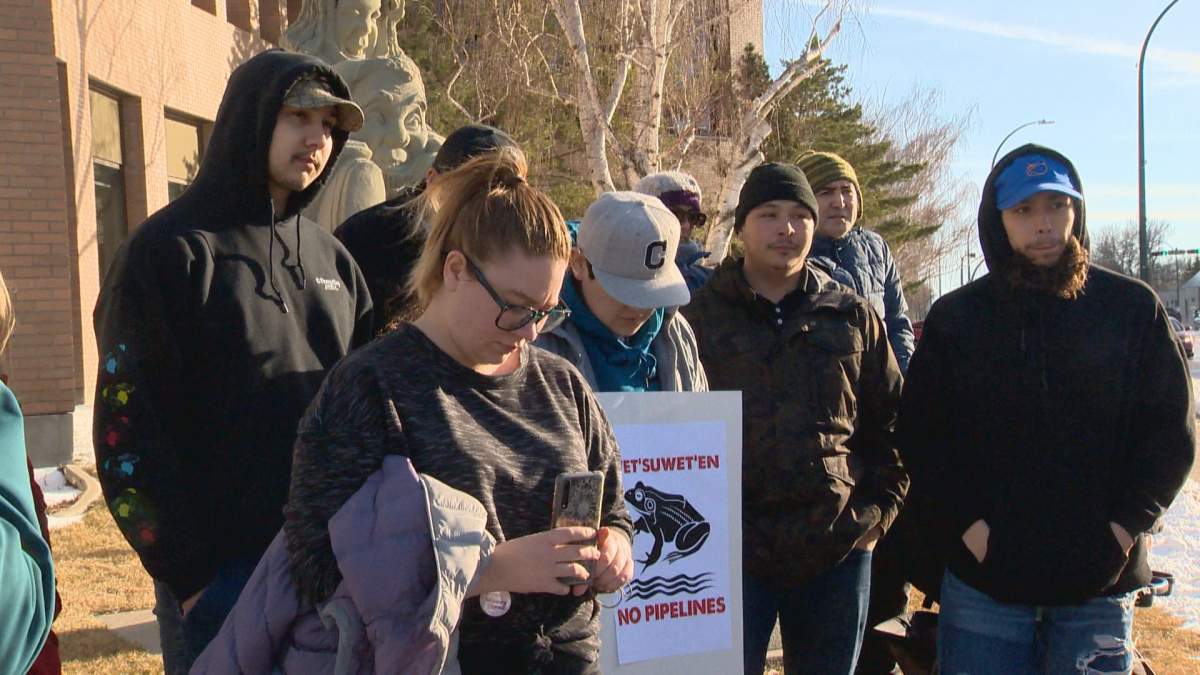People in Lethbridge are showing their support of the Wet’suwet’en First Nation after some of its members were arrested by RCMP while protesting the construction of a gas pipeline.

The clans living on the Wet’suwet’en land in northern British Columbia have been protesting against the 670-kilometre long Coastal Gaslink pipeline, which would run from Dawson Creek to Kitimat.
The Wet’suwet’en Nation’s hereditary chiefs have long opposed the project, and its territory is not covered by treaty.
RCMP has issued a court injunction near the site, but that hasn’t stopped protesters attempting to block construction in the area.

Get daily National news
Several demonstrators have been arrested in Wet’suwet’en, and 33 people have been arrested in Vancouver for protesting.
In Alberta, the Lethbridge Public Interest Research Group (LPIRG) organized the solidarity event via Facebook on Sunday.
The rally on Monday had around two dozen people all chanting, “consultation is not consent.”
Some protesters told Global News that their attendance was meant to show support and stand together with Indigenous people.
The call to action was originally sparked by the “We Support the Unist’ot’en and the Wet’suwet’en Grassroots Movement” who have asked cities across Canada to show their support.
The online group has 11,805 members and has garnered almost 3,000 more supporters over the last 30 days.
Solidarity protests are occurring in all major cities across the country, but the movement has also gained international attention.
Protests in support of Wet’suwet’en hereditary chiefs have taken place in the U.S. in Washington, D.C., Bellingham, Wash., and San Francisco, as well as in New Zealand, Sweden and Ecuador.

Comments
Want to discuss? Please read our Commenting Policy first.